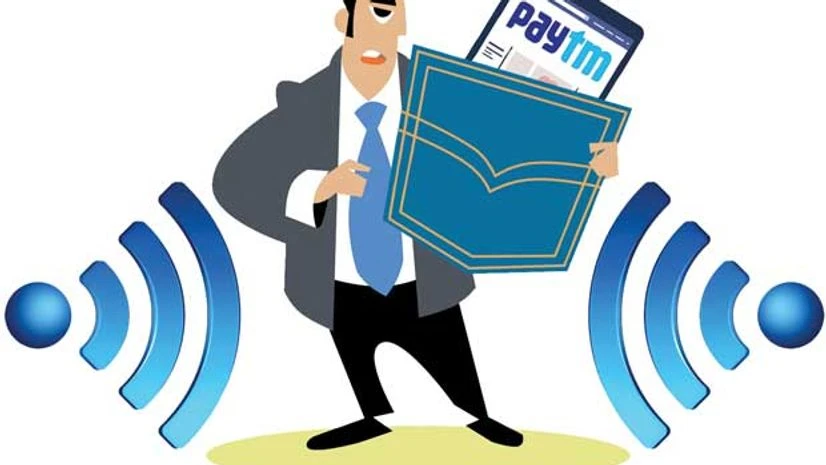In the wake of Prime Minister Narendra Modi's call for a “less-cash society”, three states ruled by the Bharatiya Janata Party (BJP) have taken the lead in adopting a digital payments system. While Goa’s tourism department has shifted a majority of its services on cashless payment facilities, Haryana Chief Minister Manohar Lal has issued directions to the state machinery to go ‘cashless’ in a week. Madhya Pradesh, too, is attempting the switch to digital payment terminals.
According to a report in the Economic Times, Haryana’s finance department has issued directions to all state government offices to install digital payment terminals through State Bank of India (SBI) or Punjab National Bank (PNB). The state has estimated that it will need about 40,000-50,000 point-of-service (PoS) machines for cashless ATM/debit/credit card transactions.
In Goa, a cashless facility is made possible by the Goa Tourism Development Corporation (GTDC) through an online web portal, booking of services and products through mobile apps available on iOS and Android platforms at GTDC residencies, and restaurants through POS machines. GTDC is also working to introduce pay wallets, and talks are underway with leading service providers to make these accepted as an alternative mode of cashless payments. According to the GTDC records, cashless transactions to the tune of Rs 2.5 lakh to Rs 3 lakh are executed daily for various services provided by the corporation.
Madhya Pradesh Chief Minister Shivraj Singh Chouhan has constituted a five-member committee to prepare a road map for the state government to switch over to a cashless system within a stipulated period of time.
The Madhya Pradesh government has joined hands with SBI to make the state cashless by rolling out the Digital India drive and promoting digital literacy in the state. SBI has embarked upon a five-week campaign by roping in National Service Scheme (NSS) volunteers to create awareness about the PoS mechanism among traders.
“MP will be the first state to launch the drive. As many as 750,000 RuPay cards are in Madhya Pradesh, 50,000 use pre-paid cards, while 1,000 customers download mobile application daily, and 50,000 transactions are routed through mobile banking. The only task is to motivate small retail traders to activate their PoS machines in smaller towns and rural areas and put them to use, so that the state can become cashless,” said K T Ajit, chief general manager, State Bank of India.
The state already has an online value-added tax collection system, which will be augmented further in non-connected areas.
More From This Section
The Ministry of Urban Development has asked all statutory 4,041 Urban Local Bodies to shift to e-payments at the earliest. These cities and towns account for about 75% of the total 400 million urban population in the country.
State and city-level officials were asked to promote internet banking (RTGS/NEFT), and online banking using credit and debit cards for cashless transactions, besides using Public Finance Management Systems (PFMS) developed by the Ministry of Finance for fund transfer, accounting and reconciliation up to the level of cities and towns.
The urban development ministry has asked local bodies to shift to the e-payment mode for all transactions related to both income and expenditure. These include the payment of property tax, professional tax, all user charges like water and power bills, all kinds of fee and licence charges, online booking of community halls, issue and renewal of birth and death certificates, registration of shops and other establishments, and library memberships, among others.
Meanwhile, the Delhi unit of BJP has launched an initiative ‘My Mobile, My Bank, My Wallet’ to create awareness about various modes of online and cashless transactions. Delhi BJP’s Digital Team participated in several marches to create awareness about e-banking and explain the mobile spending features to local residents and traders.
Prime Minister Narendra Modi has also urged senior bureaucrats to reach out to small, informal groups and address them on the social and cultural benefits of demonetisation. He asked them to enlighten the public on how cashless economy would disincentivise criminal activities like narco trade, bribery, capitation fee, human trafficking, thieving, et al. Besides, less cash in circulation can prevent cases of dowry harassment and other social evils.
BJP leaders and ministers have also decided to take on the task of educating the public on how to make digital payments.
Many of the volunteers are themselves not adept at this yet. However, officials of policy think-tank NITI Aayog will be training them on how to make cashless transactions by using software applications.
NITI Aayog on Wednesday constituted a committee of chief ministers and experts to script an action plan and draw up a road map to implement the digital payment systems across the country.
“The committee will examine and implement measures for promoting the use of digital payment systems across the country and usher in transparency, financial inclusion and a healthy ecosystem,” according to an official statement.
According to the Economics Times report, BJP MPs will be visiting their respective constituencies and holding sessions with the public, demonstrating the use of digital payment modes.
Leaders like Maneka Gandhi and Ravi Shankar Prasad have already prepared their roster and plan to visit their constituencies this week. The emphasis will be on the need for Unified Payment Interface (UPI), e-wallets and SMS banking.
While India continues to be driven by the use of cash, Prime Minister Narendra Modi’s push for cashless economy has been severely criticised by some economists, including Nobel Laureate Amartya Sen, who has called the Modi government’s demonetisation move “despotic action that has struck at the root of economy based on trust”.

)
